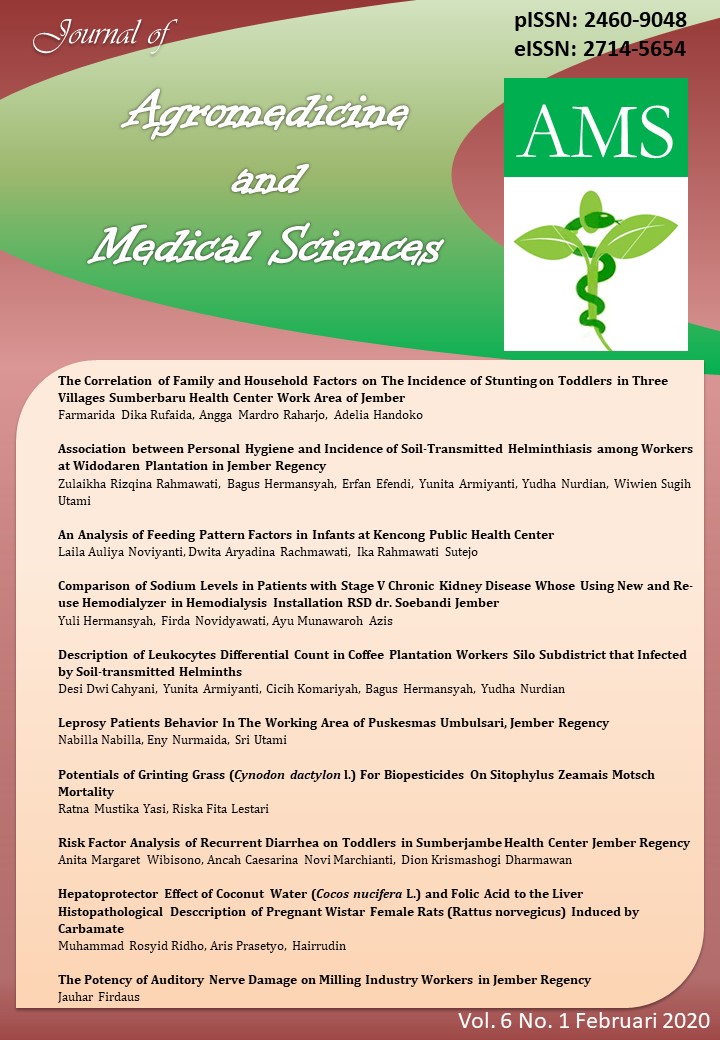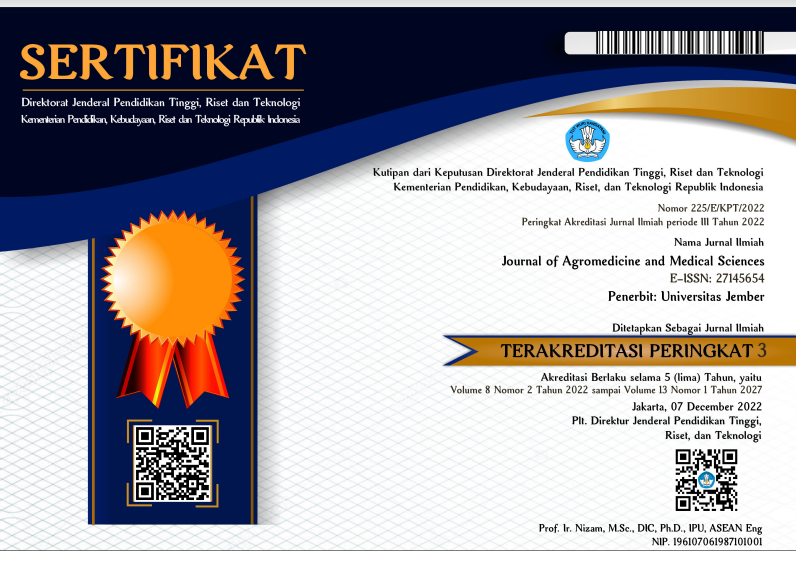Description of Leukocytes Differential Count in Coffee Plantation Workers Silo Subdistrict that Infected by Soil-transmitted Helminths
DOI:
https://doi.org/10.19184/ams.v6i1.9620Abstract
Helminthiasis caused by soil transmitted helminths (STH) are still a serious health problem in the world and in Indonesia. Indonesia has a prevalence that varies between 2.5%-62%. This infection can cause blood disorders such as leukocytosis, eosinophilia, and changes in hemoglobin levels. The purpose of this study was to describe the leukocyte count of coffee plantation workers that infected by STH. This research was an observational descriptive study, using a cross sectional design and was conducted at the coffee plantation in Silo subdistrict. Stool examination was conducted by the concentration method (sedimentation and flotation) to determine the presence of STH infection, while for leukocyte count, we used the differential count method. The results of examination on 101 feces samples showed 26.7% (27/101) of workers were positively infected with STH, with details of the STH type of hookworm by 92.6% (25/27), and the remaining were double infections by Ascaris lumbricoides and hookworm as much as 7.4 % (2/27). Examination of leukocyte count showed, 17 workers with hookworm infection had abnormal leukocyte count i.e eosinophilia and neutrophilia, while 8 workers were normal. All workers with double infection (2 workers) had abnormal leukocyte count i.e eosinophilia and neutrophilia. These results can be influenced by the chronicity of the infection or the intensity of the infection.
Keywords: Chronic Kidney Disease, sodium, re-use hemodialyzer























